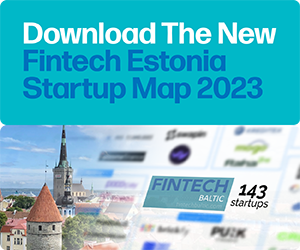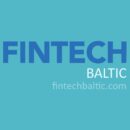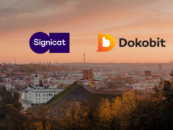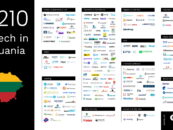
Lithuania Welcomes Blockchain and Creates a Growing Crypto Ecosystem
by Fintechnews Baltic July 19, 2018The world is dealing with a widespread adoption of cryptocurrencies, and it’s not an easy ride. Bitcoin, the world’s largest digital currency, is down more than 50% this year, and 66% down from its all-time high of almost $20,000 in late December. Ethereum, Ripple, Litecoin, and other cryptocurrencies have gone through similar dramatic drops in the past months.
One of the main reasons for the cryptocurrency market drop is the uncertainty brought on by new regulations issued by governments and the volatility of the market. For example, Japanese government has just ordered six cryptocurrency operators to improve their measures against money laundering; a government panel in India is considering a draft of new crypto regulations; S. Korean regulators are getting ready to release new regulations for crypto and blockchain.
Despite the general uncertainty as many cautious regulations are introduced around the world, some governments are showing trailblazing support for the blockchain technology. These countries have the biggest opportunity to be at the forefront of the blockchain movement – and one such country is Lithuania.
Lithuania has the biggest number of ICOs per capita in the world, a high concentration of Bitcoin full nodes, and the government is in support of the advancing technology.
Easy Market Entry for Blockchain Projects
For example, the Bank of Lithuania is facilitating an easy market entry for new blockchain projects by issuing financial licenses through an online form. Lithuania is already the fastest country in the EU to issue PI and EMI licenses: it only takes 3 months to obtain such licenses, which is up to 4 times faster compared to other EU countries. The new process should help Lithuania beat its own record.
The Ministry of Finance, the Bank of Lithuania and the private sector are working together towards a more transparent and even faster-growing crypto ecosystem. For example, Marius Jurgilas, Board Member at the Bank of Lithuania, is helping launch a blockchain sandbox platform which will promote innovation-friendly regulation in Lithuania. Another strong advocate for the blockchain technology is Antanas Guoga (Tony G), member of the EU Parliament, businessman, philanthropist, and poker player, who is also the founder of the Blockchain Centre Vilnius, Europe’s blockchain getaway to the rest of the world.
The Blockchain Centre enables blockchain entrepreneurs, developers, investors, and regulators to share their know-how, and is one of only three Blockchain Centres in the world.






